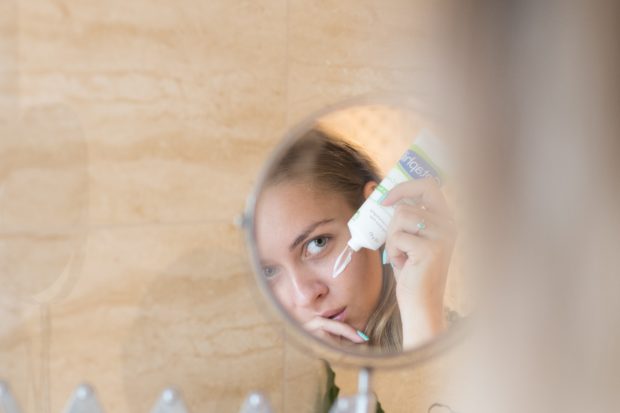How To Avoid Eczema Triggers

According to the latest statistics, around 35% of people have different stages of eczema (also known as atopic dermatitis ) in the United States. Eczema is a condition that makes your skin cracked, red, dry, and itchy. In some cases, it can also lead to blisters. Some people have this disease throughout their adulthood while others outgrow it.
At this point, dermatologists are not sure why some people develop atopic dermatitis. However, they do know what can trigger eczema flares. If you also experience the symptoms of this condition ( inflamed itchy skin with rough patches), learn what can trigger eczema and follow these recommendations to relieve the itchy skin:
Hot weather
Eczema sufferers might have noticed that it is difficult to take their skin condition under control during the summer. According to the Eczema company, prolonged exposure to the sun combined with sweating and swimming can cause atopic dermatitis. During the summer, you should avoid sunbathing and moisturize your skin every single day. It is crucial to find the right sunscreen and apply it on a daily basis. It is better to test the product on little areas of the skin before applying it to your face since the wrong type of sunscreen can make your eczema worse.
Another important thing is to keep your skin hydrated during the summer months. To do so, you should drink plenty of water and use products that can soothe your skin. Consider using creams that are approved by the National Eczema Association or find some home remedies. To calm your irritated skin at home, you can make a creamy avocado mask or milk compresses.
Also, you should use soap substitutes that can moisturize your skin. It is recommended to stay in the water no longer than twenty minutes per day.
Stress
Long-term stress can lead to severe health issues, including high blood pressure, heart disease, hardening of the arteries, diarrhea, depression, and skin problems such as psoriasis, acne, and eczema.
When you have too much stress, your body starts to increase the production of stress hormones (adrenaline and cortisol). In turn, it suppresses your immune system and causes eczema.
If you are going through a very difficult time in your life and having eczema flares, consider making an appointment with a psychologist. To cope with stress, you should indulge in physical activity, try some relaxation techniques, improve your nutrition, and get enough sleep.
Avoid certain fabrics
Some people with this skin condition are sensitive to certain fabrics. To prevent eczema flares, find clothes that will not irritate your skin. Avoid wearing synthetic materials, wool, and fleece.
The best fabrics for eczema sufferers are cotton, micro-fiber, and silk. In case you have a sweater that worsens your condition (but you still like it a lot!), you can always wear an extra layer underneath to protect the skin.
Avoid sweating
It has been proven that excessive sweating can cause eczema. However, it doesn’t mean you can’t exercise. According to a study, regular physical activity can help you boost your immune system and decrease the eczema risk.
You need to follow a few rules in order to work out safely. Every time you go to the gym, take a clean dry towel so that you can blot sweat with it. It is essential to drink plenty of cold water during your exercise and stay away from the sun. Also, take regular rest breaks and wear cotton, loose clothing to the gym. If you have an eczema flare now, choose low-impact workouts; you will be able to go back to intense workout in the future.
Detergents
Some detergents, shampoos, soaps, and shower gels might irritate your skin. A lot of products contain fragrances and chemicals that cause dryness and itchiness. That’s why it is important to find a fragrance-free shower gel and laundry detergent.
Certain foods
Dermatologists confirm that certain foods can cause an eczema flare in some people. The list of foods that you should limit for a while includes eggs, soy, spices, tomatoes, gluten, citrus fruits. Your doctors might also recommend you to do allergy testing. Also, you should monitor your symptoms after eating new foods.
To reduce your symptoms, you should eat anti-inflammatory foods. For instance, your daily diet should include fatty fish, spinach, cherries, broccoli, and blueberries.
Foods that contain probiotics can help you support your immune system and prevent eczema. Here is a short list of probiotic foods: kefir, miso soup, sourdough bread, tempeh, naturally fermented pickles, unpasteurized sauerkraut, and soft cheeses.
The bottom line
It is possible to live well with eczema. Your goal is to determine what irritates your skin. It might be certain foods, fabrics, or stressful situations. Track your daily mood and monitor your symptoms. Consider making an appointment with your doctor in case you don’t know the reason for your eczema flare.

